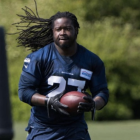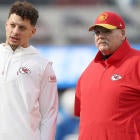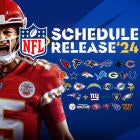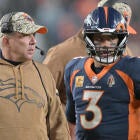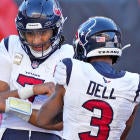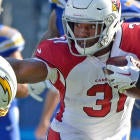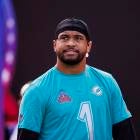Over the last five seasons, only two NFL teams have a better record than the Seattle Seahawks, who have compiled a 56-23-1 mark. Their .706 winning percentage sits behind only the New England Patriots and the Denver Broncos, while only the Pats have outscored their opponents by more points than Seattle. If you've been paying any attention to professional football during that period of time, you know exactly why the Seahawks have been so dominant. Pete Carroll's crew has been the best defense in the NFL over the totality of those five seasons, and has had a strong claim to being the single best defense in each individual season as well.
The Legion of Boom -- led by a trio of stars in Richard Sherman, Earl Thomas, and Kam Chancellor -- gets a lot of the credit. And deservedly so. They're where the team gets its swagger from, after all, and they've all been extremely well-rewarded (with Pro Bowl and All-Pro berths) and well-compensated (with rather large contracts) for their hard work. The stalwart defensive line -- fronted by two of the best free-agent signings in NFL history in Michael Bennett and Cliff Avril -- has been just as important to the team's point prevention and yardage suppression.
(The Seahawks are back at training camp! Don't MISS anything as they prepare to try and return to the playoffs -- take five seconds to Sign up for our Free Seahawks newsletter now!)
The Seattle offense is not quite as well-regarded as the defense, but for a while it was just as integral to the team's success. The Seahawks were not necessarily explosive offensively, but they were extraordinarily efficient -- especially on the ground. The rushing attack powered by the twin talents of Marshawn Lynch and Russell Wilson was arguably the best in football from 2012 through 2015. Lynch missed several games due to injury in the last of those seasons, but Thomas Rawls and Christine Michael were there to pick up his slack.
Lynch retired prior to the 2016 season, though; and then Wilson suffered an ankle injury during the team's season opener, and it hobbled him throughout the rest of the year. As a result, the team's once-elite run game plummeted toward the bottom of the barrel across the board.
| Year | YDS/GM | YDS/ATT | DVOA | ALY |
| 2012 | 161.2 (3) | 4.8 (5) | 1 | 4 |
| 2013 | 136.8 (4) | 4.3 (12) | 7 | 9 |
| 2014 | 172.6 (1) | 5.3 (1) | 1 | 4 |
| 2015 | 141.8 (3) | 4.5 (7) | 3 | 4 |
| 2016 | 99.4 (25) | 3.9 (24) | 22 | 26 |
The Seahawks ranked inside the top-10 in rushing yards per game and per attempt, as well as Football Outsiders' rush offense DVOA and Adjusted Line Yards in 2012, 2014, and 2015. They narrowly missed hitting all four of those marks in 2013, finishing just 0.1 yards per carry away from being in a tie for ninth in the league. In the first year of the post-Lynch era, they finished outside the top-20 in each of those statistics. Their running game bore little resemblance to the dominant force it had been before.
Some of the blame for that fall has to lie at the feet of the offensive line, and by extension, the front office. The Seahawks have invested less in their offensive line than almost any team in football, and last year it showed. When Wilson was no longer able to threaten the edge on a regular basis, opposing defensive lines had a field day crashing down toward the middle and tackling ball-carriers before they could generate a full head of steam. Wilson ran the football a career-low (by far) 72 times last season, and averaged a career-low (by far) 3.6 yards per attempt. An incredible 23 percent of the Seahawks' rushing attempts were stuffed in the backfield last season, the third-worst mark in the NFL. Their totals over the previous four years were 15 percent, 19 percent, 17 percent, and 18 percent. Each of those figures would have ranked inside the top-12 in the NFL last season, while 15 percent would have been inside the top-five.
A healthy outlook
With Wilson healthy after an offseason of healing, the Seahawks should be in better position to challenge more of the field with their running game in 2017. Better still, they now have a more versatile cadre of weapons coming out of the backfield, which should allow them to show the defense several different looks and thus result in wider rushing lanes than were available last year.
Thomas Rawls returns to the fold and figures to play a leading role. He struggled badly in seven starts last season, but also was never fully healthy after fracturing his fibula in Week 2. By the time he got back to being himself, he set the Seahawks record for rushing yards in a postseason game, tearing up the Lions with 161 yards on the ground in a wild card round victory. He has a good combination of quickness and power, and he's a decisive runner once he decides to get downhill. He's got experience working with Wilson in the backfield, and knows how to take advantage of the quarterback's skill set.
When the Seahawks want more of a speedy look, they can turn to C.J. Prosise. A shifty former wide receiver, Prosise looked to be on the verge of a massive breakout midway through last season before the injury bug hit him as well. Having already sat out five games due to a chipped bone in his right hand, Prosise got knocked out for the year in Week 10 when he fractured his scapula. He was coming off a three-game-and-one-quarter span where he touched the ball 25 times and racked up 352 yards and a touchdown. He was an absolute monster in the Seahawks' victory over the Patriots, making New England's linebackers and safeties look silly on routes out of the backfield and lined up out wide. He can be used all over the formation and is a threat to score as soon as he steps on the field.
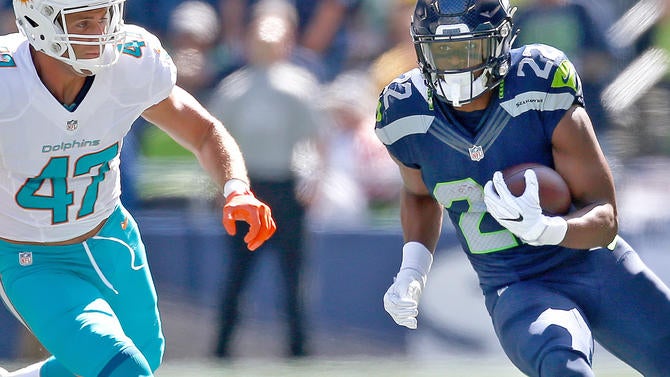
The Seahawks also brought a little bit of the straight power back to their game when they added Eddie Lacy this offseason. Lacy will not be counted on to be the bell-cow like he often was in Green Bay, but will instead be used strictly in advantageous situations. He can get first downs in short-yardage, pick up gains in the red zone, and bully through defenders when the Seahawks need to finish out a game.
Lacy played with a mobile quarterback in Aaron Rodgers, but Rodgers' mobility was of more use to the Packers when he was scrambling to make something happen. He was not often used in designed runs. A defense that has to respect the edge in the running game more often is one that cannot crash down as hard on Lacy's carries up the middle, and he should benefit from some extra room to breathe. (And hopefully, from being lighter on his feet.)
There's still the question of whether Seattle's relatively anonymous offensive front can block it up for their quartet of runners, but remember, the Wilson/Lynch-era Seahawks did not run behind a world-beater offensive line. With the QB back to his usual self and a trio of players that present multiple looks to the defense, the Seahawks should be able to get back to what they do best. And that should carry them once again toward the top of the NFC standings.













